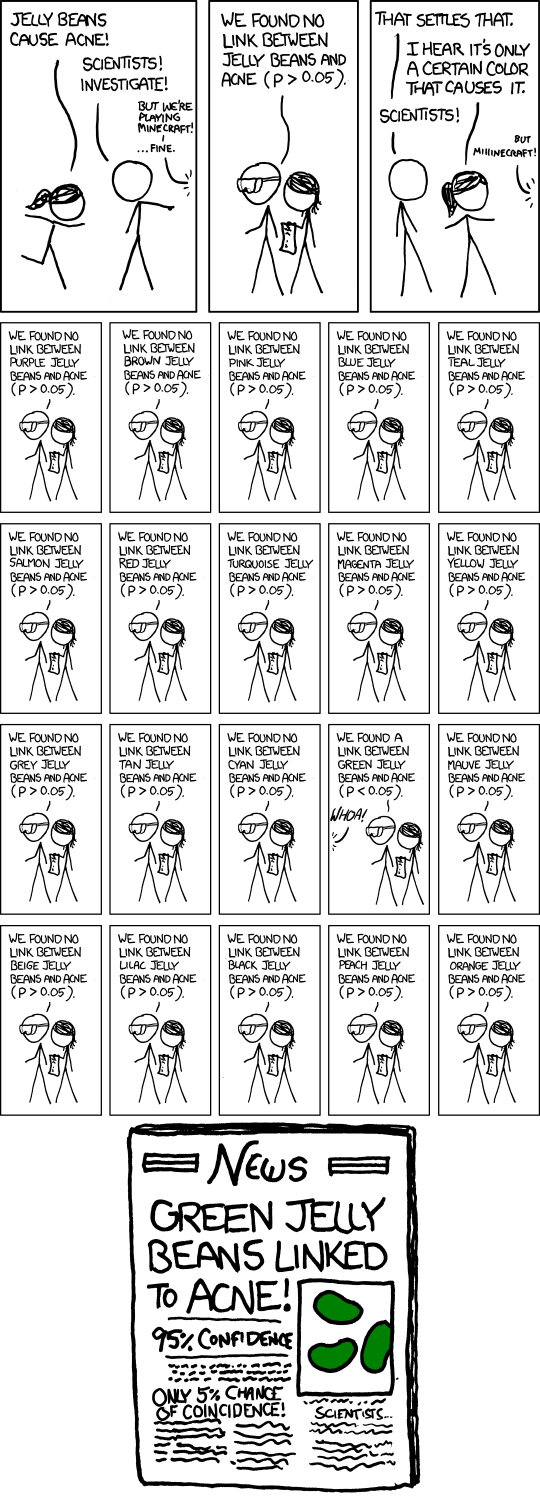My biggest criticism of Brulosophy is their arbitrary worship of the 95% confidence level, which misleads people in a BIG way. Example:
"...13 participants (P<0.05) would have had to correctly identify the cool ferment sample as being unique, while only 12 (p=0.083) were capable of doing so, meaning 14 tasters selected one of the other samples. Although close,
these results suggest tasters in this xBmt were unable to reliably distinguish between pale lagers of the same recipe fermented 20˚F/11˚C apart,”
Conclusions like that one drive me up the wall. There is in fact 91.7% confidence that there might be a detectable difference between the samples, but they say there's not. Whatever.
Marshall can accept constant criticism, since meanwhile he is supported by millions, so he can choose to absorb as much or as little criticism as he wants. Celebrity status. As long as he is never accused of sexual harrassment or racism, he'll continue to be adored by the masses.
Don't get me wrong, I like Marshall a lot, he's a very decent guy. It's just... he doesn't know us from Adam, and he's bombarded, so why should we be here discussing this, why should he give a poopy at all... he doesn't have to listen.
Related recent thread on another forum:
https://www.beeradvocate.com/commun...t-rehydration-experiment.601466/#post-6364443





































![Craft A Brew - Safale BE-256 Yeast - Fermentis - Belgian Ale Dry Yeast - For Belgian & Strong Ales - Ingredients for Home Brewing - Beer Making Supplies - [3 Pack]](https://m.media-amazon.com/images/I/51bcKEwQmWL._SL500_.jpg)

